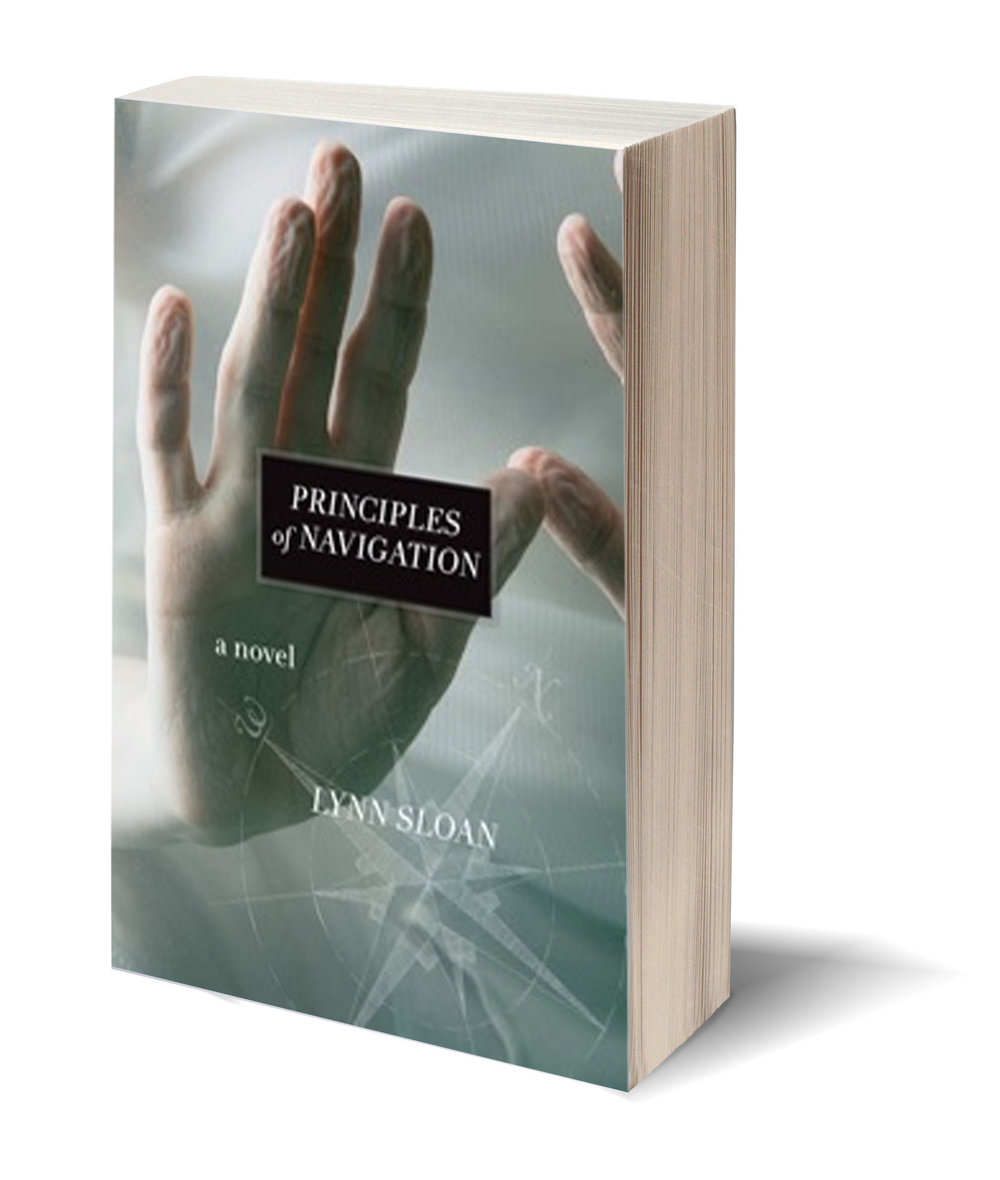Principles of Navigation
By Lynn Sloan
Fomite Press |
 |
|---|
Reviewed by John David Harding
"Everyone loves a disaster." This line, spoken by a secondary character who later assumes a seminal role in Lynn Sloan's Principles of Navigation, speaks directly to society's fascination with scandal, especially regarding the private lives of others. It also underscores the essential relationship between conflict and plot. Particularly of interest are conflicts regarding matters of the heart. A prime example is the slow-burning disaster that befalls the marriage of Alice and Rolly Becotte, the central focus of Sloan's novel.
Throughout the book, a series of significant conflicts test the strength of the Becotte's marriage. The underlying problem is that neither Alice nor Rolly knows exactly what they want from their marriage. This is especially true for Rolly, a professor of art and a successful artist, whose dedication to his work makes him emotionally unavailable at home. Although Alice is passionate about having a baby, Rolly is not. Instead of speaking his mind, however, Rolly keeps his true feelings to himself. For Rolly, the idea of being a father is particularly distressing, primarily because a child would upset the status quo of his marriage and his career as an artist:
[Rolly] couldn't be an occasional artist. Art was an all or nothing calling. You had to be free to take risks. You had to prowl; you had to be quick and responsive. How could you do that and be a father? […] What fatherhood meant was giving your child whatever was required and shepherding your child toward an independent life. You would want for your child the very thing you had given up for him. Something was wrong with this equation.
Meanwhile, Alice is determined to have a child. She keeps a calendar and thermometer at hand for increased efficiency. The couple's incongruent desires are made apparent during the book's opening scene. Knowing that the time is ripe, Alice takes Rolly to bed and says, "Today's the day." Possibly feeling pressured and a little bit used, Rolly clams up and turns away, but Alice pursues him: "Don't do this, Rolly. You're my mate. […] I want you and I want our baby." Rolly relents and they make love, but afterward he retreats into his studio, leaving Alice alone and rebuffed. In another conversation, Rolly questions Alice's intentions: "Something is wrong if all you want from me is sex according to your personal calendar." But what he fails to say clearly is that he does not want children. Had he done so, the couple might have avoided considerable heartache, but the disasters continue from there.
On the page, Alice, who specializes in small-town disasters as the star journalist for the Haslett Herald Weekly, comes across as more alive than does Rolly's character. Especially enlivening are the snippets of Alice's thoughts which fittingly take the form of newspaper articles. For instance, when Alice can no longer stand the sight of her next-door neighbor's plastic pool, which has languished in the yard long past summer and into winter, she pries the pool out of the snow and chucks it into the garbage can. She then composes an extemporaneous news lede in her head: "A sudden explosion shattered the Saturday calm in a peaceful alley in Haslett around 11:50 a.m., sending doves reeling. Sources close to the birds say a woman in a brown skirt and beige cardigan was seen fleeing the scene." But while Alice comes close to winning the audience's full sympathies, Rolly is given the chance to make his case. During his sabbatical in Norway, Rolly is forced to communicate with Alice via e-mail. The transcripts of these emails convey Rolly's undying devotion to her, and reveal a more sensitive side to a character who at first blush seems incapable of showing vulnerability.
Granting the reader access to both sides of the marriage, a third person limited point of view moves between Alice and Rolly from chapter to chapter. While the structure provides insight into the interior life of each character, it prevents the development of any one character's point of view in totality. Maybe, then, we are not supposed to approach the novel with conventional expectations for a single protagonist. Instead of pointing to Alice or Rolly as the book's central character, one could say that their marriage—which throughout the novel undergoes significant trials and tribulations, and ultimately a change—is the novel's main character. Seen in this way, the principles of navigation alluded to in the title might refer to what we can learn from this marriage, such as the entanglements, the miseries, and ultimately the freedoms which result from telling the truth about what we want.
It is initially unclear whether the story of a troubled marriage could be both original and captivating, but this is soon an afterthought as the plot quickens and the stakes are raised. Deep in the book, when tensions reach fever pitch, Sloan demonstrates an aptitude for plotting and pacing which brings an authentic sense of urgency to the story. Medical emergencies, infidelities, and a period of separation promise to destroy the couple formerly known as Alice and Rolly Becotte, but the resolution is anything but predictable. It would be a mistake to refer to Principles of Navigation as a "page-turner," but the book is plotted in such a way that I wanted to turn the page—no, I needed to turn the page. The payoff at the end made me glad that I did.
